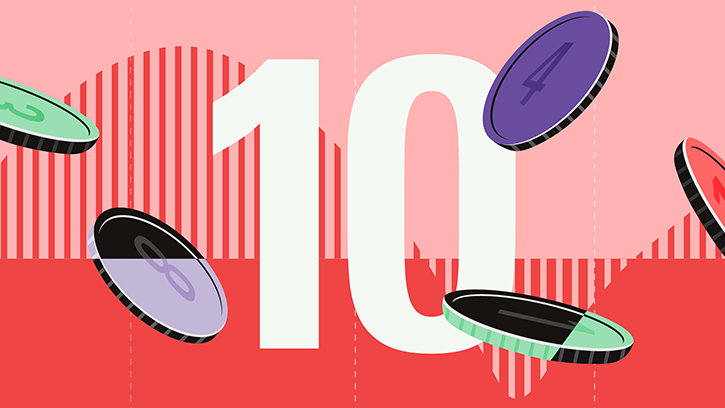
Interest rates in Europe are the lowest across major western markets, while the US economy has eclipsed the region. This divide matters greatly for investors: expectations remain low for growth in Europe, so stimulus in the form of interest rate cuts could go a long way to improving the macroeconomic picture. The region is now a far more attractive place for investment than it has been for the last couple of years. Still, elections in the UK and France add an element of uncertainty for investors.
Does this mean European markets are cheap? At current levels Europe is trading exactly in-line with our bottom-up fair value estimate for the region, which means that although it is not expensive, it is also not excessively cheap on an absolute basis. But relative to other regions such as North America, which is currently trading at a 10% premium to our fair value estimate, Europe is looking more attractive.
What's the European Market Outlook?
With the potential catalyst for interest rate cuts, European firms might be looking rosier relative to other regions in which central banks are operating with more restrictive monetary policies.
Elections in the UK and France in early July will have an impact on stocks. In the UK the housebuilding sector could benefit from a new government, while in France the potential victory of National Rally has shaken up some sectors, banks in particular.
Market Outlook for Homebuilder Stocks Improves
UK homebuilders have not been an attractive place for investors for the last few years. Fundamentals have been negative, with construction waning as high interest rates dampened demand from wannabe homeowners. Inflation too has materially increased the cost of homebuilding, disincentivsing homebuilders further from increasing new construction.
Fundamentals are once again showing signs of improvement. Mortgage approvals are recovering from their lows, inflation is coming back under control, and new construction activity is steadying. Still, this is far from a signal that the recovery in homebuilder earnings, and indeed share prices, will be quick.
The new Labour government could be another further catalyst for growth and share prices rose after the election news. The party has made housing as one of its key areas of focus, with a plan to build 1.5 million homes over their term, essentially a target of 300,000 homes per year.
This is an ambitious target, representing a level of homebuilding not seen since the 1970s, a time when the UK had a far smaller population. Whether these targets are met or not, this level of homebuilding would require a significant step-up from the large UK homebuilders, which would mean significant revenue growth over the next five years.
French Elections - Uncertainty and Opportunities
French stocks fell after President Macron called a snap election. Markets are right to be concerned, with Rassemblement National/National Rally coming out on top in the first round of elections, albeit faring slightly worse than market expectations. The second round of voting is at the weekend.
The far-right party’s programme to run up fiscal debt at a time when the country should be going in the opposite direction is clearly a dangerous strategy. However, many of the sectors and shares that have been hit as a result of the election are far less exposed to potential policy changes than investors may believe.
French banks have seen some extreme share price reaction, with BNP Paribas being hit in a material way. There are genuine concerns here about increasing funding costs as French credit spreads widen. However, the retail exposure that BNP has to the French market is limited, and if anything, increased perceived risk in European markets could create more business for BNP as its clients look to hedge these risks on rates and currency.




























